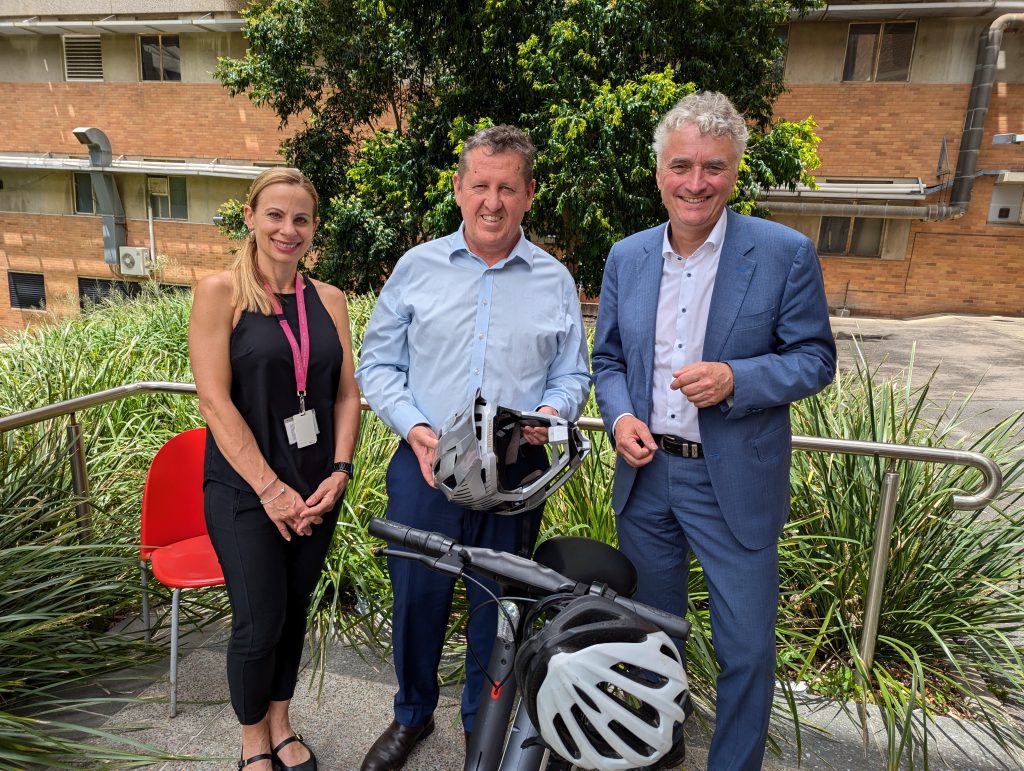Electric Personal Mobility Devices Surveillance patient survey study demonstrates that reform urgently needed to reduce serious e-scooter injuries

Prof. Kirsten Vallmuur, Dr. Michael Kane, Prof. Michael Schuetz
Research between Royal Automobile Club of Queensland (RACQ) and the Royal Brisbane and Women’s Hospital Foundation and conducted by the Jamieson Trauma Institute, is demonstrating that reform is needed to address the seriousness of life-changing injuries on private and hired e-scooters. Between 1 January-30 September 2024 there have been 1050 presentations to participating Queensland Injury Surveillance Unit (QISU) emergency departments as a result of an e-scooter ride gone wrong. For the same nine-month period in 2023, there were 940 presentations.
Patient interviews are being conducted at five major Queensland emergency departments. Responses to date from 109 e-scooter injured patients have indicated the following:
- The majority of patients presenting with e-scooter injuries are male, with an average age of 34 years.
- More than one-third of private e-scooter riders presenting to emergency admitted to travelling at speeds over 25km per hour.
- 64% were injured on a private device compared with 36% on hired e-scooters, which is consistent with a surge in the popularity of owning an e-scooter.
- Private scooter-related injuries are predominantly occurring during the week on the work commute while almost one-third of hire scooter injuries presented on a weekend when people are using the scooters for recreation.
- 79% of people using privately owned scooters reported wearing (and fastening) a helmet compared to 50% of hire scooter users.
- 29% of hire scooter users reported not wearing a helmet compared to 19% of private scooter users.
- Although 65% of all riders said they were wearing helmet, it appears that standard helmets are not always providing protection against facial injuries.
- 35% of hire scooter users reported consuming alcohol in the previous 8 hours compared to 7% of private scooter users.
- 75% of private scooter users ride their scooter 4 or more times a week, while 39% of hire scooter users only ride once a week and 30% had never used one before the injury event.
These patient interview responses have enabled JTI to gain insights into different patterns and trends to allow better targeting of safety initiatives. Following this latest research, RACQ is calling for major changes to e-scooter rules and is advocating for people who are using private stand-up scooters to be required to wear full-faced helmets and for hired scooters to transition to more stable ‘sit-down’ scooters that have a lower centre of gravity. The study is ongoing.
